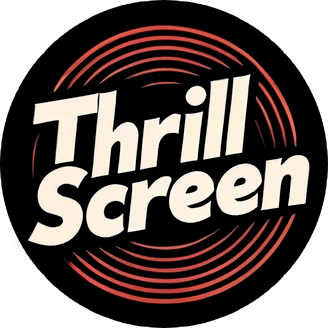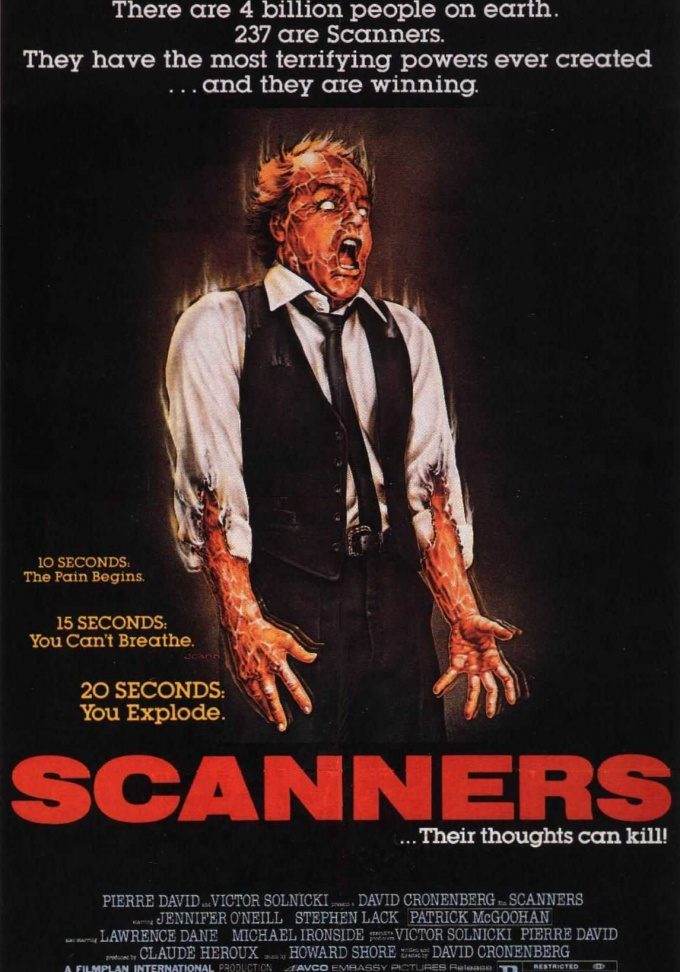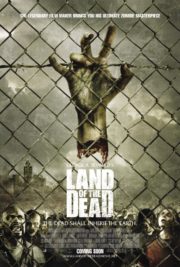Explosive Minds: A Review of “Scanners”
“The human mind is like Van Halen. If you pull it in the right direction, it’ll make an amazing sound, but if you push it too hard, it’ll blow up in your face.” – Darryl Revok
In the chilling aisles of horror cinema, David Cronenberg’s 1981 tour-de-force “Scanners” stands as a hallmark of body horror and explosive psychic warfare. At its core, a covert narrative rooted in the fringes of humanity, “Scanners” is surprisingly thought-provoking, with an arsenal of paranormal talents set against ordinary backdrops, leaving no mind safe from its reach.
Setting the Dreadful Stage: Atmosphere and Tone
The horror of “Scanners” seeps in through a masterclass of cinematic anxiety, where serenity precariously tiptoes on the edge of bedlam. Cronenberg’s interplay of mundane reality with the grotesque capabilities of the film’s telepathic titans imbues every scene with a visceral disquiet. Building tension rests less on the shock of sudden scares and more on a growing sense of unease, where characters and viewers alike understand that mental implosion could lurk around any corner.
Through the Lens of Fear: Cinematography and Auditory Agony
As the narrative weaves through corporate intrigues and personal vendettas, cinematographer Mark Irwin employs a clinical lens that brings a sterile, almost documentarian quality to the film. Coupled with Howard Shore’s chilling score, which mirrors the clashing of psychic titans with discordant harmonies, “Scanners” operates on a sensory level that’s both understated and unnerving. Sound effects are wielded like a scalpel, cutting to the core of one’s comfort zone, then retracted into silence, leaving audiences to stew in their unease.
Visual triumphs such as the infamous head explosion scene stand as apexes of practical effects, marrying the meticulous artistry of makeup and mechanical effects to deliver shocking visuals that resonate long after the credits roll.
Characterizing Terror: Performances and Human Horror
Stephen Lack’s portrayal of the protagonist, Cameron Vale, traverses a gamut of bewilderment, pained human connection, and burgeoning power. Though sometimes criticized for a wooden delivery, Lack’s performance can also be interpreted as aptly reflecting his character’s detachment and confusion in a chaotic psychic landscape. Opposite him, Michael Ironside’s depiction of the villainous Darryl Revok is both chilling and charismatic, presenting a necessary foil that elevates the paranoid tension throughout the film.
The supporting cast deliver grounding performances that help to tether the extraordinary elements to a world that is both recognizable and relatable. It’s an ensemble that works, predominantly because they collectively manifest a believable universe where the horror of psychic dominance feels both imminent and inevitable.
Challenging the Psyche: Horror Elements and Thematic Depth
“Scanners” delves into numerous sub-genres—corporate espionage, conspiracy thriller, and psychic science fiction—yet it’s the body horror elements that leave an indelible mark. The manifestation of psychic abilities as a physically crippling, often gruesome ordeal, adds a visceral layer to the psychological horror. Cronenberg prods at the fear of losing control, both of one’s body and mind, concepts that resound with stark terror even beyond the confines of the screen.
The thematic weight of “Scanners” is substantial, engaging with ideas of identity, power, and the ethical implications of technological advancements. The fear it evokes is not only of the unseen forces lurking within but also of the societal structures that exploit such forces for clandestine purposes. These layers enhance the film’s impact, positioning it as a cerebral addition to the horror canon.
For its time, “Scanners” was both groundbreaking and prescient, its portrayal of psychic warfare echoing contemporary anxieties about surveillance and the manipulation of the human mind.
Final Thoughts: Fright and Delight in Cronenberg’s World
As a horror film, “Scanners” undoubtedly gnaws at the nerves, thrusting the audience into contemplation of their vulnerability to unseen forces. While the film may not leave viewers cowering in fear, it does engage them in a more profound speculative horror—the kind that lingers and haunts long after the visceral reactions have subsided.
“Scanners” will resonate most with those who appreciate horror that skewers the psyche while also delivering gut-wrenching visual spectacles. While not necessarily for the faint of heart, due to its graphic content, it’s a must-watch for connoisseurs of the genre. Those less acquainted with body horror or seeking a traditional jump-scare driven experience might find themselves out of their element.
In summary, “Scanners” is a fascinating, if imperfect, piece of cinema. Its strengths lie in its unique premise, Cronenberg’s meticulous direction, and its unsettling power to provoke thought. If you can stomach the intensity of its more shocking scenes, this film is a journey worth taking, and a compelling chapter in the evolution of horror storytelling.




